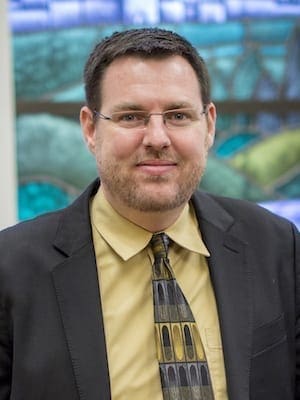Arthur Holmes reminds us in “The Idea of a Christian College” that we must rigorously pursue the intersection of their faith within the wholeness of the human experience.
A Christian college, and by implication those vocationally pursuing the study and application of Christian studies, must do so because “we live in a secular society that compartmentalizes religion and treats it as peripheral or even irrelevant to large areas of life and thought.”
The biblical worldview, however, clearly and consistently admonishes believers to positively contribute to a vision of human flourishing.
People of Christian faith are to live out what the New Testament describes as “good news” in the midst of contexts that are all too often divided, conflicted and trapped in poverty.
As one example, according to the United Nations High Commissioner for Refugees (UNHCR), in 2014 the number of refugees, asylum seekers and internally displaced people worldwide exceeded 50 million for the first time since World War II.
As the UNHCR rightly notes, “one family torn apart by war is too many.” The following facts from the United Nations are indeed sobering:
− 43.3 million people worldwide forcibly displaced due to conflict and persecution
− 46 percent of these individuals are children
− 15 million of these individuals are uprooted from their home countries
− 27 million remain within their countries but are internally displaced due to conflict
− Many lack the essentials of life, such as clean water, food and protection from violence and abuse
These are real people with real needs. Moreover, the call to stand alongside displaced individuals is central to the biblical narrative. In fact, there is an entire book within the Old Testament addressing this subject.
The book of Ruth is, in part, dedicated to establishing an ethic that asks people of faith to contribute to human flourishing by standing alongside those living in the midst of difficult cross-cultural situations.
Ruth is the story of a young woman who found herself in Israel, a country that differed in culture, religion and background from the one in which she was raised.
And what is more, there was a long history of suspicion, hostility and violent armed conflict between the peoples of Moab and Judah.
Imagine yourself as a young, single woman with the responsibility of providing for an older relative, with only limited access to finances, separated from family and friends and suspiciously viewed with ethnic hostility in all of your daily interactions.
Ruth was forced to glean the leftover grain that was first missed by harvesters and servants, and it is in this context of difficulty and poverty that the biblical story introduces Boaz.
Having compassion, Boaz extended an open hand to Ruth and helped her with financial and material goods.
Over the course of the grain and barley harvests, this initial relationship grew.
This is a story about crossing boundaries, of an immigrant who came from a country that was deemed “suspicious,” and about overcoming prejudices by showing compassion and financial generosity specifically to the displaced within our communities.
The book of Ruth is a reminder that people of faith are called to stand in prayer, friendship and practical support with all those within our community who have been displaced, especially those who have experienced the traumas of violence, war and forced flight.
This is where faith, friendship and vocational discipline intersect.
For many in the United States, this reality has taken on new meaning as 50,000 unaccompanied minors have sought asylum over the last 12 months.
As the Baptist World Alliance recently noted, many of these individuals are “victimized by separation from their families, economic exploitation, lack of medical care and education [and] discrimination.”
It is our responsibility to “respond to the need for spiritual support and pastoral services for these children” and to “create welcoming communities.”
Behind the overwhelming numerical statistics are individuals who can be influenced by individuals. This is the power of one connecting with one.
In a way, after all, the believer in Christ is to see themselves in the words of Hebrews 11:13, “[as] foreigners and strangers on earth.”
People of faith should be among the first who recognize fellow sojourners and to follow the call of the biblical narrative by welcoming the refugees and displaced within our communities.
We can do so through a commitment to:
− Pray for the refugees and displaced around the world
− Seek greater awareness about the reality of the 50,000 unaccompanied minors who have sought asylum along the southern border of the U.S.
− Reach out and befriend an immigrant or refugee in your context and to help build a community of welcome
 Elijah Brown is the director of the Freedom Center and associate professor of missions at East Texas Baptist University (ETBU) in Marshall, Texas, where he also serves as a faculty in residence. A version of this article first appeared on ETBU’s blog, The Intersection, and is used with permission. You can follow Brown on Twitter @ElijahMBrown.
Elijah Brown is the director of the Freedom Center and associate professor of missions at East Texas Baptist University (ETBU) in Marshall, Texas, where he also serves as a faculty in residence. A version of this article first appeared on ETBU’s blog, The Intersection, and is used with permission. You can follow Brown on Twitter @ElijahMBrown.
Elijah M. Brown is the general secretary of the Baptist World Alliance.

